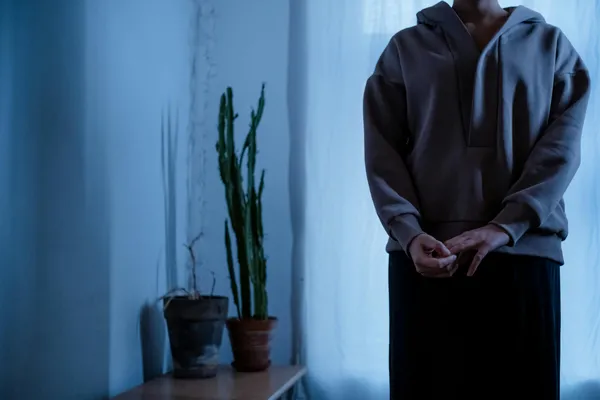As humans we are somewhat possessive by nature, especially when it comes to love and relationships. However, to build a lasting and healthy connection with a partner, you must learn how to relinquish control. That kind of self-awareness does not come easy, especially considering how many societal and developmental hang-ups we carry surrounding our love life.
Often, possessive and controlling behaviors aren’t as simple as just telling somebody they can or can’t do something. In some instances they can be subtle, demeaning attempts to isolate and abuse a partner over time. That’s why it’s crucial to spot these signs early and know how to deal with the associated feelings in a more thoughtful and considerate way so you don’t end up ruining your relationship.
You don’t like them spending time with their friends
Whether you get along with a partner’s friends or not – and no legally binding relationship rule says you have to – it is not your decision who another person chooses to spend their time with. Your partner should take your feelings into consideration though, and you’re allowed to have grievances if the time they spend with their friends has an impact on your own relationship.

That being said, if it truly bothers you, then this points towards there being a deeper issue. This is particularly the case if you worry that their friends are bad influences or are turning them against you, without any solid evidence or reasoning to back up the theory. Controlling behaviors tend to manifest out of a lack of trust, and it’s not healthy to not trust your partner. It could be some personal reflective therapy you need, rather than assuming that the relationship state is something that needs fixing.
You’re concerned about their screen time
Suspicion surrounding phones in general is a pretty bad sign for your relationship when you consider what they are to the vast majority of people. While the US only has a couple of minutes over the average worldwide figure, most of us spend seven hours a day looking at some kind of electronic device. Phones account for over half of that, most of which is pure (usually super unimportant) leisure.

If their usage is becoming inconsiderate, such as if they’re ignoring you in a conversation in favor of scrolling social media, or they’re becoming intensely secretive and hiding their screen from you, then you should talk to them about it and see if there is any underlying reason. Consider how you behave with your own phone – it’s something with such an inescapable presence in our lives, and our patterns of use become nearly subconscious.
You feel the need to control their finances
Most of us learn pretty early on in life that wealth is intrinsically tied to our ability to survive. One of the perks of a relationship is just how much cheaper life can be for couples! With how ever-present a source of stress money can be, you’re only making your situation worse by not sharing the load.

Money gives you and your partner freedom and a sense of security, but it’s important for you both to be on the same page. How money is balanced and budgeted is a joint decision and, though life gets complicated sometimes and that balance is thrown out of whack, you should both work together on your joint financial stability. You’re still allowed to question any outrageously expensive impulse purchases though – it’s not toxic to ask if you really need that second Tesla…
You feel paranoid about losing them
It’s entirely reasonable to fear losing a partner, and it would probably be stranger if you didn’t. Fear is a powerful motivator though, and people frequently make rash, selfish decisions when they think it will spare them or ease their emotional turmoil – whether it’s rational or not. If you see others (like friends, co-workers or even family members) as a threat to the relationship, it’s possible you might try and steer your partner away from them so they spend more time with you.

Bad outcomes can still result from decisions made with the best intentions, which is why in a relationship it becomes vital to make decisions together. You both deserve to have as much information and context as possible, with the opportunity to get your voice heard. It might not work out, and your fears may become a reality, but you might find that it doesn’t cause nearly as much dread as you expected.
You try to involve yourself in their travel
A common trait in severely possessive relationships is the control or limitation of a partner’s travel time. It can start as a matter of practicality, like keeping one car between the two of you to save on costs – but this can quickly set a precedent that one partner holds power over where the other goes.

It can also manifest in forcing them to take certain routes or avoid travel at certain times. These are often imposed with the guise of being a safety measure, but are ultimately about restricting how much of the world and its people your partner can interact with. If these behaviors seem to come from a deep distrust leading to a desire to limit free choices, that’s a sign that there’s some pretty toxic patterns in your relationship.
You use ultimatums often
Ultimatums are a powerful social tool, and while it’s hard to say that they’re completely inappropriate in relationships, they are something that should only be used as a last resort. Of course, everybody would define their last resort differently – but if you’re utilizing multiple last resorts with your partner every month, it’s likely that your parameters are askew, not theirs.

When you hold the relationship hostage, especially at a point when the power within it is heavily weighted in your favour, you are putting your partner in a lose-lose situation. If you aren’t clearly offering an amicable end to the relationship as a potential option, then you aren’t ready to use an ultimatum. There’s no shame in failing at a relationship, or at anything for that matter, provided you learn and grow from it. That includes personal and emotional growth, which is an essential base for repatterning your behavior long term.
